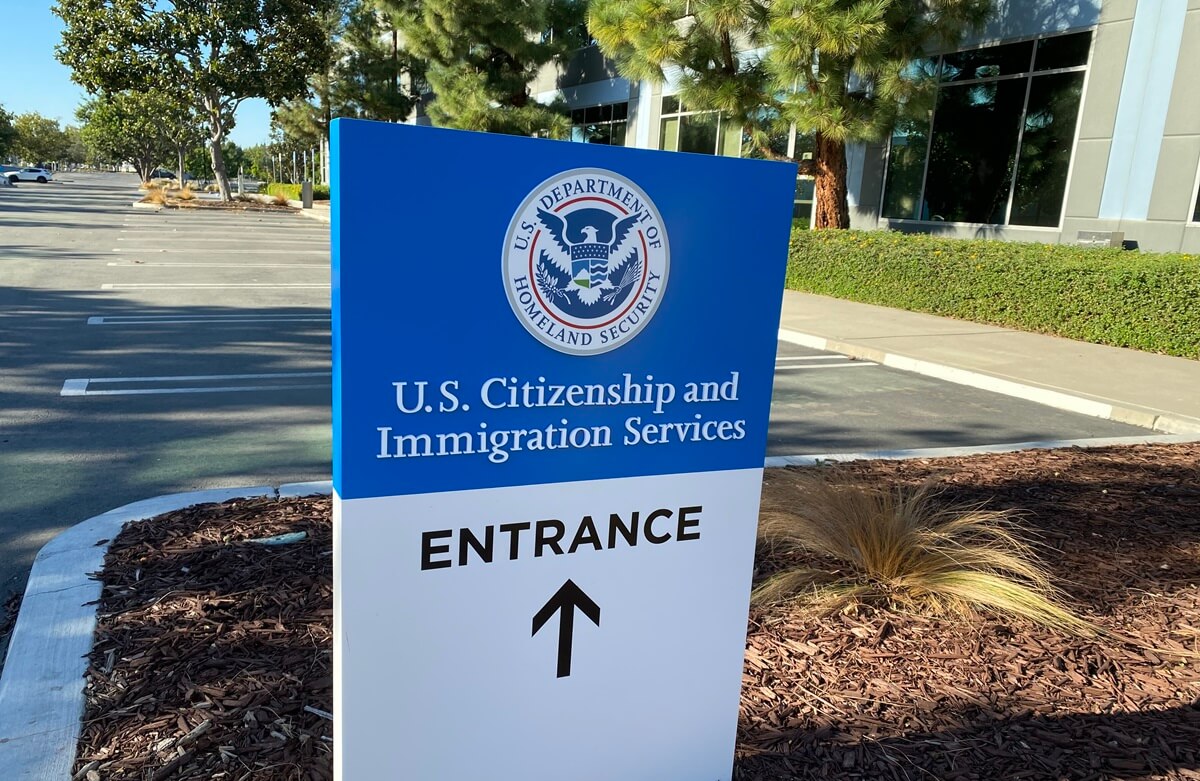

As a large bureaucratic organization that processes millions of forms each year, U.S. Citizenship and Immigration Services (USCIS) occasionally has cases that slip between the cracks and do not get the attention they deserve. USCIS may also do a poor job in some cases of managing workload at certain locations. While processing times can vary, waiting for a decision can be stressful, especially for those facing urgent situations. Fortunately, the agency also offers a way to do a USCIS expedite request for certain qualifying cases. This article explores various strategies to potentially expedite your USCIS application or petition.
Table of ContentsYou cannot expedite your USCIS request simply because it is taking too long. As mentioned, there are hundreds of thousands of people at any given time waiting for USCIS to process their case. When you expedite, you are requesting that USCIS prioritize your form over others in front of you. They will do this, but only on a case-by-case basis and after weighing the merit of each expedite request. There are certain criteria.
For general delays, there are other processes in place to help you tell USCIS that your “case is taking too long.” You can track the status of your case online and submit an inquiry if your case is outside the normal processing time.

Here are some simple and free steps you can take to get USCIS case status updates for your pending application…
Depending on the type of immigration benefit you are requesting and your specific circumstances, there are various strategies for the USCIS expedite request.
USCIS offers premium processing for certain forms, including employment-based petitions and applications for work authorization. For a premium processing fee, USCIS guarantees a decision within a specific timeframe (usually within 15 business days). This is the most reliable and predictable way to expedite processing, but it's not available for all forms. It is not available for family-based immigration forms.
If premium processing is not available for your form, you may request USCIS expedite the processing and decision of your petition, application or other form. USCIS will consider your request to expedite on a case-by-case basis. Generally, you must be able to clearly document your urgent need relative to USCIS expedite criteria.
If there have been unreasonable delays in your case, you may sue USCIS and force them to make a decision in your case. Bear in mind that this decision can be positive or negative. You must carefully evaluate with your attorney if this is worth the added risk and cost of the additional work required for this complaint.
When USCIS takes too long to make a final decision on your immigration case, a writ of mandamus may be the solution. A writ of mandamus is a court order that compels a government agency to take action. It’s a more advanced strategy, and therefore, it’s generally best to use an attorney to do it for you. But if your case fits certain criteria, you may be able to do it yourself with the help of a company like Pro Se Pro. The company provides you the blueprint and guidance to sue the government yourself.
If all else has failed, you may also reach out to your U.S. congressional representative for help. Congressional representatives have the ability to engage more directly with federal agencies on behalf of their constituents. They do not have the ability to resolve or make a decision on your specific immigration request. They can help bring attention to your case and hopefully get USCIS to act more quickly. Find your member of Congress >

We analyzed the immigration agency’s performance over time and suggest how you can get the best processing times or get…
An expedite request is a request for USCIS to prioritize your application or petition over others. It's crucial to understand that USCIS has the sole discretion to grant or deny such requests. USCIS expedite criteria or circumstances that may be considered in determining whether to grant an expedite request include, but are not limited to, the following:
There is a valid basis for expedited treatment, if you can document that your company or organization would suffer a severe financial loss without a decision. Examples of severe financial loss may include lost sales, risk of financial default, workforce layoffs or other negative economic consequences.
Humanitarian situations are those that deal with the welfare of human beings, including family and the greater public. Examples include, but are not limited to, illness, disability, death of a family member or close friend, or extreme living conditions, such as those caused by natural catastrophes or armed conflict.
A nonprofit organization may request expedited treatment if they can show evidence that there is an urgent need to expedite the case based on the beneficiary’s specific role within the nonprofit in furthering cultural or social interests. Examples include a doctor or religious leader’s whose specific skills are vital to continuing the organization’s mission.
Government need for a specific individual is also a basis for a USCIS expedite request. Although this is generally driven by the interests of the federal government, it applies to any federal, state, trial, territorial, or local government of the United States. Again, the organization must demonstrate the urgent need to approve a benefit affects the government’s role in a substantive way.
You may request expedited treatment if USCIS makes an obvious error and expedite action is required to correct the error. For example, an applicant who receives an Employment Authorization Document with incorrect information that prevents them from being able to work may make a USCIS expedite request to replace the document.
Again, this is not an exhaustive list of criteria for expedited treatment.
It can be difficult to obtain a travel document on an expedited basis. It’s always best to apply for a travel document well in advance of travel, whenever possible. However, when there is a need, there are steps applicants should take to improve their chances of having such requests approved.
Your request for an emergency advance parole document must be emergent. "Emergent" means "arising unexpectedly," while "emergency" means "calling for prompt action." If you are experiencing an extremely urgent situation, you may request an emergency advance parole appointment at your local field office. Here's how:
Gather documentation that supports your reason for expedited processing. USCIS may expedite your application for advance parole if it meets the criteria listed above. The burden is on the applicant to prove that one or more of the expedite criteria have been met.
Many humanitarian emergencies are due to family health issues. Examples of a valid humanitarian need to travel with advance parole on an urgent basis may include a requestor who has a critical need to obtain medical treatment in a limited timeframe or a requestor who needs to travel urgently due to the death or grave illness of a family member or close friend.
Examples of acceptable documents may include: proof of a fatality, hospital records, or doctor’s letter. Evidence is extraordinarily important to the success of your request. Without evidence that validates your request, you should not have an expectation that USCIS will approved your request for expedited processing of a travel document.
Complete Form I-131, Application for Travel Document, indicating your request for an Advance Parole Document. It's extremely important that the application is accurate and prepared correctly. Mistakes and omissions will significantly delay the process. CitizenPath can help you prepare form I-131 quickly and accurately.
You may schedule your appointment online for Emergency Advance Parole. You should take the following items to your appointment:
We’ve found the most effective way to avoid delays in processing is to submit a well-prepared application package with all supporting documentation. CitizenPath’s focus is helping do-it-yourself filers file correctly. Designed by immigration attorneys, our affordable service helps you prepare your application or petition perfectly, and provides you with specific instructions on which supporting documents to submit for your situation.
In some cases, there are alternatives to a USCIS expedite request. Here are some form-specific options that may get you the benefit you seek more quickly:
If you’ve requested a green card renewal or replacement, you can also get temporary proof of your status. You don’t have to wait until your card comes in the mail. In most cases, the USCIS extension letter will satisfy the needs of individuals with expired cards. Those who have a lost or stolen card can get a stamp in their passport.
Adjustment of status applicants who are facing delays obtaining an advance parole document may be able to use Pro Se Pro's AOS AP Mandumus program to expedite the USCIS request. If you cannot wait any longer, the mandamus is a proven strategy to get the government to act.
USCIS processing times for the I-751 may span well over one year. Recently, some cases have taken as long as four years. Although USCIS automatically provides a green card extension with the receipt notice, conditional residents want to know their future is secured. One way to speed up I-751 processing is to apply for citizenship if eligible. Many conditional residents meet the citizenship requirements while waiting and become eligible to file Form N-400, Application for Naturalization. Applicants may file Form N-400 even if Form I-751 is pending. Generally, USCIS will combine the cases and adjudicate both in the same interview.
Alternatively, you can also use Pro Se Pro's Removal of Conditions Mandumus service to expedite Form I-751 adjudication.
Spouses of U.S. citizen service members who are (or will be) stationed outside the United States may be eligible for expedited naturalization in the U.S. For more information, review the USCIS requirements and contact their military help line.
Expediting a USCIS application or petition can be a complex process. However, by understanding the criteria, gathering the necessary evidence, and potentially seeking professional guidance, you can increase your chances of a successful outcome. Remember, clear communication, a well-documented case, and a genuine need for expedited processing are key factors in securing a quicker decision from USCIS.
CitizenPath provides simple, affordable, step-by-step guidance through USCIS immigration applications. Our service helps you file forms correctly so that you have you a high probability of avoiding mishaps, RFEs and other delays.
Individuals, attorneys and non-profits use the service on desktop or mobile device to prepare immigration forms accurately. CitizenPath allows users to try the service for free and provides a 100% money-back guarantee that USCIS will approve the application or petition. We provide support for the Adjustment of Status Package (Form I-485), Naturalization Package (Form N-400), and several other immigration services.